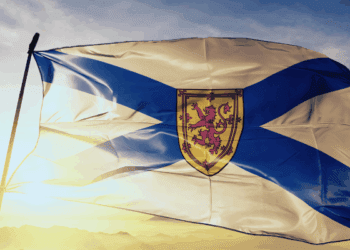December 10, 2012 – MLI author Larry Martin, a Canadian risk management expert in the agri-food sector, says fundamentals, not speculation, are responsible for higher commodity prices in an op-ed for the Vancouver Sun today. The op-ed is based on his MLI Commentary, Are Higher Commodity Prices driven by Speculation or Fundamentals?, published in November. His full op-ed is copied below and is republished in the Ottawa Citizen, Calgary Herald, Montreal Gazette, Edmonton Journal, Saskatoon’s StarPhoenix, Regina’s Leader-Post, Windsor Star, BC’s The Province, Victoria’s Times Colonist and Canada.com.
Fundamentals, not speculation, drive higher commodity prices
By Larry Martin, Vancouver Sun, December 10, 2012
It never fails. Each time commodity prices rise, there are calls for more curbs on speculation. Non-governmental organizations (NGOs) like UNCTAD have attributed much of the recent increase in food prices to speculation, and former French president Nicolas Sarkozy made the issue a priority for the G20 agenda in 2011. The latest instance was this summer’s run-up in food prices as a result of the severe drought in parts of North America.
While there are many factors that affect grain prices, a very basic one is the stockholding behaviour of the world grain processing industry. This industry has moved to almost exclusively receiving just-in-time shipments of their raw material: They don’t like to have capital tied up in grain storage facilities and inventory, and buy grain as needed to keep costs down.
But what happens when there is not much product in inventory and an apparent shortage? Grain processors become concerned about security of supply and buy a little extra just in case. Some may call this hoarding, but I would call it prudent risk management to make sure their plants stay open.
Whatever it is, the effect is to increase prices – and the lower the inventories and the more just-in-case buying, the higher prices will rise.
An interesting aspect of all the price spikes in recent years is they occurred during the growing season and were relatively short-lived because, invariably, the shortages turned out to be overstated. When production and inventories exceed expectations, how do the just-in-case purchasers respond? Naturally, they buy less, because they had already made their purchases and now return to their normal just-in-time behaviour. Reduced demand has the effect of lowering prices. The more they had bought ahead of the harvest, the greater the downward pressure on prices.
The same phenomenon is occurring this year. While some blame speculators, serious analysts see the market simply doing its job of rationing lower supply. Many people note commodity price volatility has risen along with more speculation, and draw a link between the two. This confuses correlation and causation.
The real reason for greater volatility in food prices is the trend toward lower grain inventories. This is caused by burgeoning demand in emerging economies as well as from bio-fuels, which farmers are struggling to keep up with.
Economists who specialize in commodities find current prices are in line with what is required to ration a very small drought-reduced crop. Markets set the price that will keep the supply from running out. While speculation can have a short-term impact on prices, the evidence is clear that fundamentals drive markets in the long run.
It is not helpful to address agricultural issues with superficial thinking. According to the simple view, curbing speculation would have avoided high prices. Exactly how would reining in speculators insulate us from the inevitable price effects of the worst drought in a century? And how are farmers going to take advantage of higher prices if there are no speculators to take the opposite side of the farmers’ or grain handlers’ hedges? They would be latent sellers left without buyers. The worst problems and the most volatility are in commodity markets with too little speculation to provide the liquidity that hedgers need.
Perhaps more importantly, what if policy-makers actually heed the argument against speculators? In a world with real problems, how much harm can be done with bad solutions – in this case, by potentially jeopardizing the liquidity needed in a well-performing market. With only two to four weeks of grain inventory and the spectre of very high food prices and starvation in vulnerable economies, the focus should be on ensuring people have enough to eat without resorting to revolution and terrorism.
Let’s try to understand the reality of the food situation and focus on what’s important.
Larry Martin is the author of the Macdonald-Laurier Institute’s report Are Higher Commodity Prices driven by Speculation or Fundamentals? and a principal in AgriFood Management Excellence Inc.
© Copyright (c) The Vancouver Sun
—-




